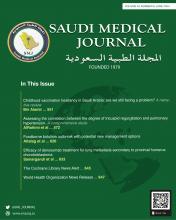2 April 2024 - Ahead of World Health Day, focused on ‘My Health, My Right’, the World Health Organization (WHO) announces the launch of S.A.R.A.H., a digital health promoter prototype with enhanced empathetic response powered by generative artificial intelligence (AI).
S.A.R.A.H. is a Smart AI Resource Assistant for Health that represents an evolution of AI-powered health information avatars, using new language models and cutting-edge technology. It can engage users 24 hours a day in 8 languages on multiple health topics, on any device.
WHO’s digital health promoter is trained to provide information across major health topics, including healthy habits and mental health, to help people optimize their health and well-being journey. It aims to provide an additional tool for people to realize their rights to health, wherever they are.
S.A.R.A.H., also known as Sarah, has the ability to support people in developing better understanding of risk factors for some of the leading causes of death in the world, including cancer, heart disease, lung disease, and diabetes. She can help people access up-to-date information on quitting tobacco, being active, eating a healthy diet, and de-stressing among other things.
“The future of health is digital, and supporting countries to harness the power of digital technologies for health is a priority for WHO,” said WHO Director-General Dr Tedros Adhanom Ghebreyesus. “S.A.R.A.H. gives us a glimpse of how artificial intelligence could be used in future to improve access to health information in a more interactive way. I call on the research community to help us continue to explore how this technology could narrow inequities and help people access up-to-date, reliable health information.”
S.A.R.A.H. is now powered by generative AI rather than a pre-set algorithm or script helping her to provide more accurate responses in real-time; engage in dynamic personalized conversations at scale that more accurately mirror human interactions and provide nuanced, empathetic responses to users in a judgment-free environment. The technology is supported by Soul Machines Biological AI.
WHO calls for continued research on this new technology to explore potential benefits to public health and to better understand the challenges. While AI has enormous potential to strengthen public health it also raises important ethical concerns, including equitable access, privacy, safety and accuracy, data protection, and bias.
Continuous evaluation and refinement as part of this project emphasize WHO’s dedication to bringing health information closer to people while maintaining the highest standards of ethics and evidence-based content. Developers, policy makers and health care providers need to address these ethics and human rights issues when developing and deploying AI to ensure that all people can benefit from it.
The S.A.R.A.H. project strives for continuous learning and development of a prototype that can inspire reliable, responsible and accessible information.
Previous iterations of S.A.R.A.H. were used to disseminate critical public health messages, under the name Florence, during the COVID-19 pandemic on the virus, vaccines, tobacco use, healthy eating and physical activity.
WHO continues to use many digital tools and channels to disseminate and amplify health information including social media, chatbots, channels and text messaging.
Available from: https://www.who.int/news/item/02-04-2024-who-unveils-a-digital-health-promoter-harnessing-generative-ai-for-public-health
- Copyright: © Saudi Medical Journal
This is an Open Access journal and articles published are distributed under the terms of the Creative Commons Attribution-NonCommercial License (CC BY-NC). Readers may copy, distribute, and display the work for non-commercial purposes with the proper citation of the original work.






